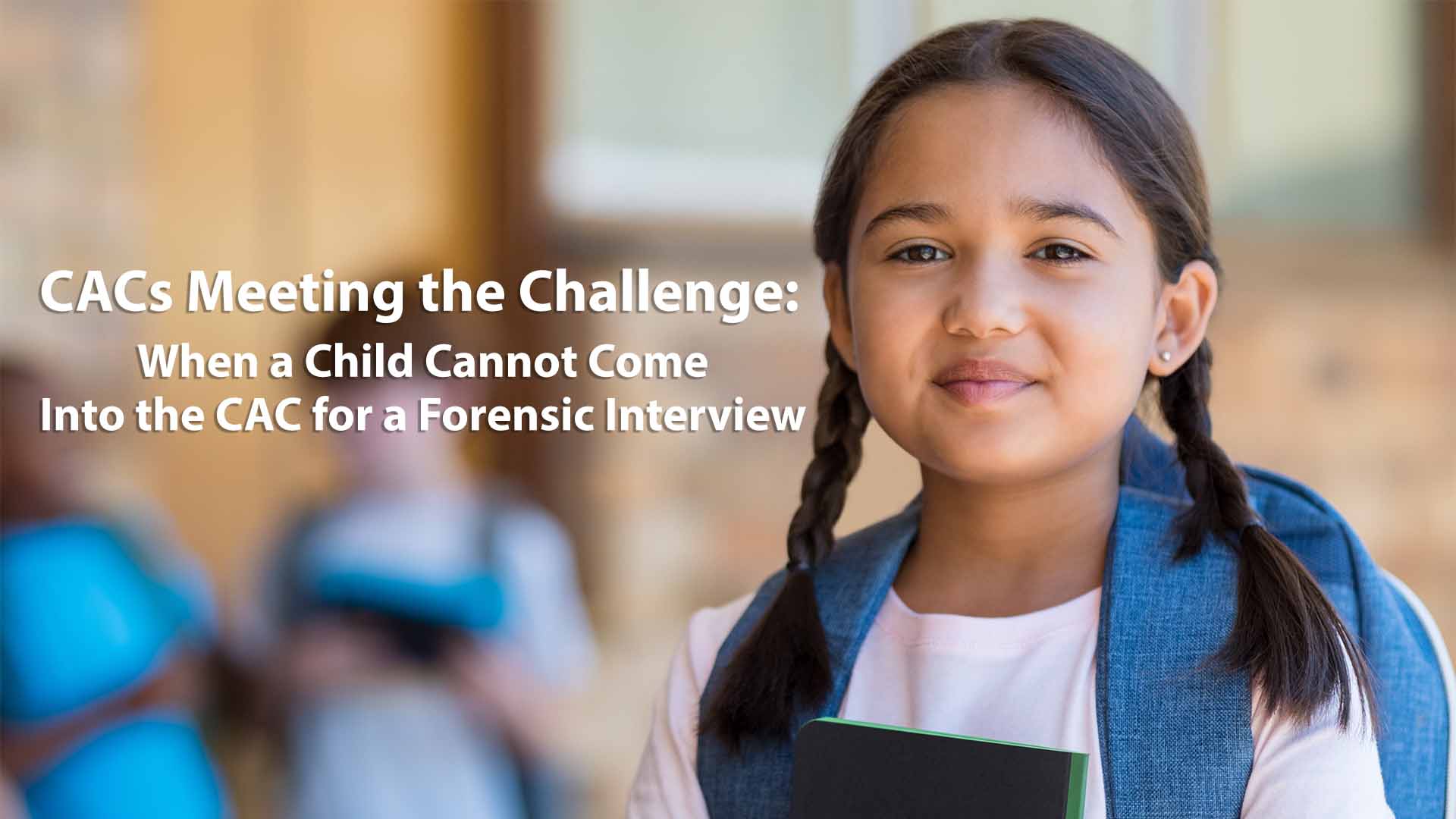Not all children are able to physically come into a CAC for a forensic interview. With a mobile interview recording system, an off-site interview room can be quickly set up to interview children where they are. A mobile system also allows a Forensic Interviewer to record securely and then share with the rest of the MDT. Here are a some examples where a mobile interview system can be used:
Teen Resident at a Juvenile Detention Center
The case required more than one forensic interview from the teenage female housed at the nearby juvenile detention center. She had come willingly to the first interview at the CAC but became very hesitant to come back. After talking with her, it was learned that she was uncomfortable and reluctant to go through a full body search each time she reentered the juvenile detention center following her return from an off-site visit to the CAC.
In cooperation with the juvenile center, the solution was to establish a temporary interview room using a mobile interview recording system at the juvenile center. The teenager was agreeable to this new arrangement.
Hospitalized Child
The child was hospitalized with severe injuries. The suspected perpetrator lived in the same home as the injured child and the child’s siblings. There was justified fear that the other siblings were in imminent danger and that the hospitalized child would face more dangerous assaults once back in the home. The responding CAC needed to interview the injured child before he left the hospital.
In cooperation with the hospital, the solution was to set up a temporary interview room with a mobile interview recording system at the hospital.
Non-offending Caregiver Unable to Bring Child to CAC
Occasionally, a non-offending caregiver is unable to bring the child interviewee into a CAC because they are unable to travel to the CAC. Examples of this scenario include:
- The caregiver and child live in a rural area and the CAC is a long drive into the city.
- The caregiver lacks reliable transportation to bring the child in.
By using a mobile interview recording system, a temporary interview room can be set up safe location easily accessible for the caregiver and child to come to.
Using the Child’s School for Less Disruption to Child’s Life and Schedule
Another scenario where a mobile interview recording system can be utilized is the child’s school. Instances where this would be an option to consider are:
- Child will miss too much in class instruction because taking the child out of school for an interview or series of interviews will cause a serious disruption to the child’s education.
- School is a safe haven for the child.
- School is a neutral location.
CAC Provides Services in a Shared Community Space
Having the ability to set up and take down the temporary interview room is an advantage for CACs who depend upon a shared community space to provide their services. Using a shared community space is especially helpful to resource strapped CACs or satellite CACs in outlying areas.
By using a mobile interview recording system, the CAC can create a temporary interview room as needed, yet still be able to safeguard the security of recordings and the recording system.
Examples of shared community space include:
- Renting or being given access to space in a church with multiple activities scheduled in that same space
- Renting or being given access within a community resource center that houses several community service providers
Looking for a Mobile Interview Solution?
V2 Advocate’s Mobile Solution with its leading-edge technology travels compactly and is easy to set up, secure, record and save. Learn more about V2 Advocate’s features.

